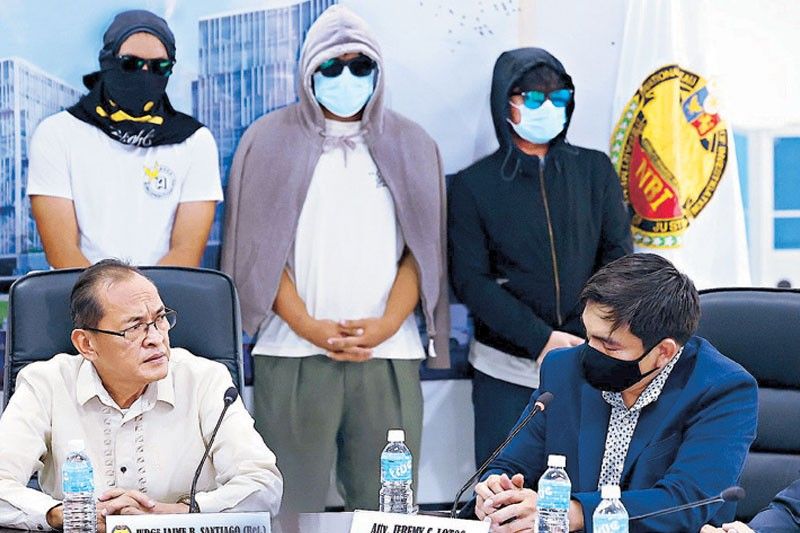NBI arrests 3 alleged hackers of government websites

MANILA, Philippines — The National Bureau of Investigation (NBI) announced yesterday the arrest of three individuals allegedly responsible for hacking several private and government websites, banks and Facebook accounts.
NBI Director Jaime Santiago identified the suspects as members of the hacking group LulzSec. NBI Cybercrime chief Jeremy Lotoc revealed that the suspects include a data officer of Manila Bulletin, a cybersecurity researcher and a graduating student, although their names were not disclosed.
The data officer claimed Manila Bulletin technology editor and IT expert Art Samaniego Jr. ordered the hacks to generate content for his column and social media platforms.
In a report by Bilyonaryo, Samaniego denied allegations that he ordered the hacking of government and bank websites to boost his social media reach. He stated he did not need to compromise the Armed Forces of the Philippines’ website for content.
“He (the suspect) claimed I asked him to hack AFP so I can have content, but I can’t write about it because we have an AFP beat reporter. There is a hole in his allegation,” Samaniego said in Filipino.
According to the NBI, the arrests followed reports of multiple unauthorized access attempts and breaches. The NBI tracked the hackers’ movements and monitored their activities on social media, forums and public databases to establish patterns and connections.
Initial contact with the suspects was made on June 14 through an informant. The hackers sent a compressed file containing a database on June 17 and hacked Facebook accounts on June 19, leading to their arrest.
The NBI revealed that one of the suspects’ phone contained scripts and databases obtained from local government units, various government websites and Facebook users’ credentials. ?The phone also contained data related to at least five banks.
The suspects admitted their activities during the inquest proceedings, Lotoc said.?The suspects were taken to the NBI-Cybercrime Division for processing and are recommended to be charged with Illegal Access and Misuse of Devices under Republic Act 10175, the Cybercrime Prevention Act of 2012 and Unauthorized Access and Intentional Breach under Section 29 of RA 10173, the Data Privacy Act of 2012.
The Department of Information and Communications Technology (DICT) praised the NBI’s efforts.
“We commend the NBI for apprehending these suspected cybercriminals. We will assist our colleagues from the NBI as their technical consultants and help them build their case against these suspected individuals,” DICT Undersecretary Jeffrey Ian Dy said.
The DICT confirmed that these cases were thoroughly discussed within the National Cybersecurity Interagency Committee (NCIAC), which aids law enforcement agencies in tracking and apprehending cybercriminals.
During a press conference at NBI headquarters, Santiago highlighted the agency’s commitment to tackling cybercrime.
“We will pound on cybercrimes. This is just the start, we have several operations lined up,” Santiago declared.
Meanwhile, the military expressed its support for current efforts of the NBI to combat cyber threats and urged the private and public sectors to take necessary steps.
“In light of the ongoing cyber threats and attacks targeting both government and private entities, the AFP recognizes the gravity of the situation and the imperative need for collective action to defend our nation’s cyber infrastructure,” AFP spokesperson Col. Francel Margareth Padilla, a cybersecurity expert herself, said.
“This case serves as a stark reminder of the persistent threats we face in the cyber domain. It underscores the importance of robust cybersecurity measures and the consequences of failing to address these adversities effectively,” she added.
She added that cyber aggressions should be stopped and people must only engage in responsible online behavior. She also said the AFP is firm in dedicating itself to protecting the country against all kinds of threats.
- Latest
- Trending




























